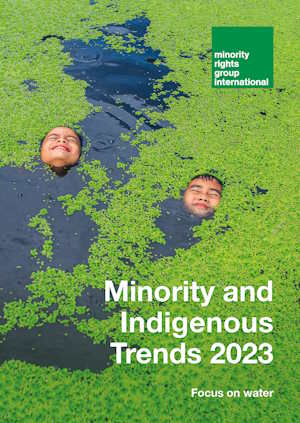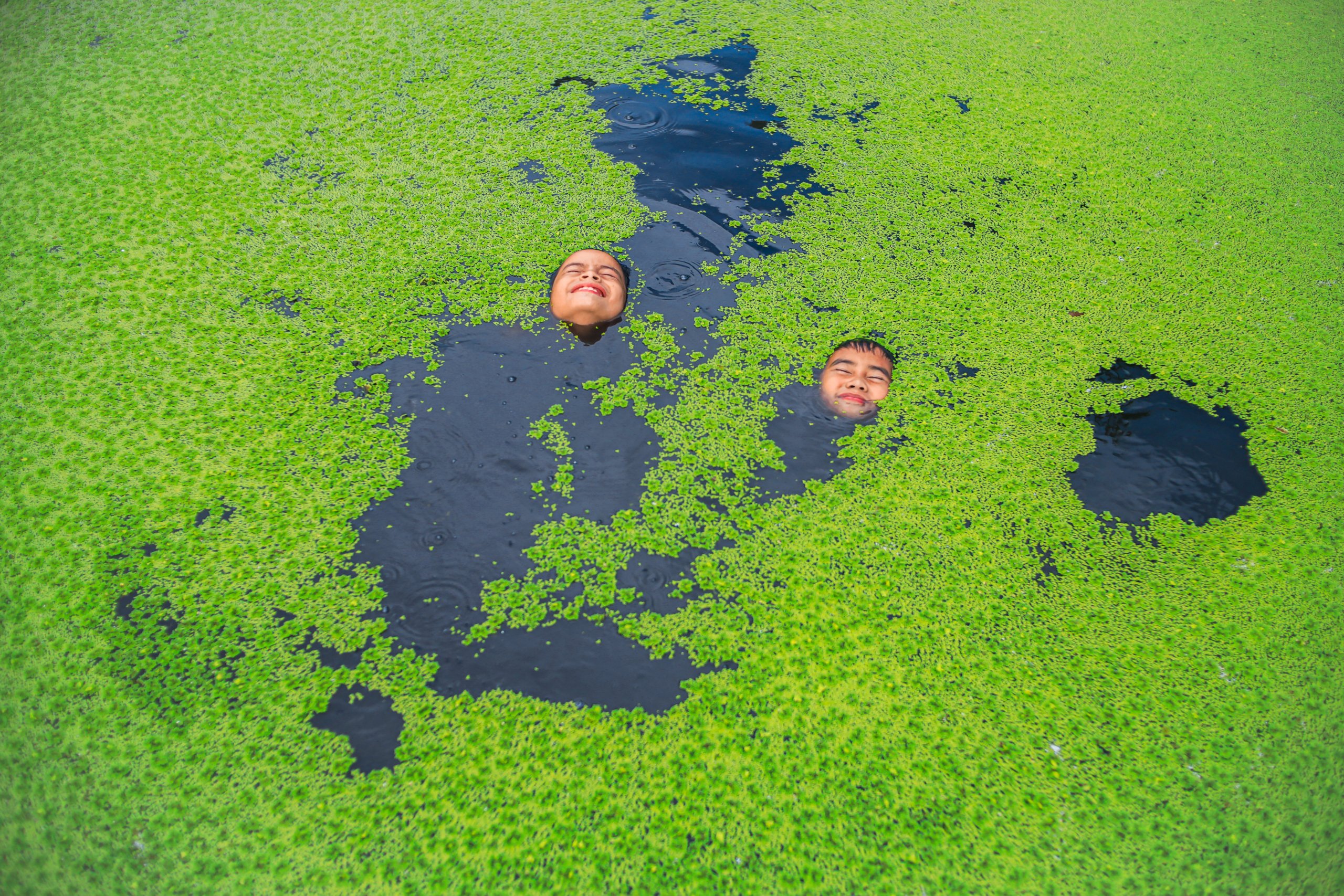
Minority and Indigenous Trends 2023: Recommendations
Governments should:
- Uphold every person’s fundamental right to safe drinking water and sanitation, regardless of their race, ethnicity, religion, language, caste, descent, gender, age, sexual orientation, gender identity, national, social or geographical origin, disability, birth or other status. This right must be respected without discrimination.
- Ensure that the necessary infrastructure is in place to ensure the fulfillment of this right for all people. This includes water points that are accessible, including for persons with disabilities, collection of wastewater and water treatment facilities, where necessary.
- Establish minimum adequate standards for safe drinking water and ensure secure supplies for all, without discrimination. These minimum standards should also apply to situations such as extreme weather events which affect regular water supplies. Adequate provision for emergency water supplies should be made ahead of time.
- Minimize pollution through the adoption and strict implementation of regulations governing polluters. Victims of pollution should be able to seek redress through legal proceedings, including compensation and penalties for violations. Adequate, long-term investment in water infrastructure, including its maintenance, must be secured.
- Take a human rights-based approach for any project involving water and sanitation. This means that all affected communities should be able to participate effectively and meaningfully in decision-making processes. Any information necessary to take informed decisions should be provided in ways relevant to the affected community.
- Apply effective and meaningful participation rights to all stages of any water and sanitation infrastructure project, including the design and setting up of independent complaints mechanisms, in order to ensure that these are transparent and accessible in ways relevant to the affected communities. Resulting water and sanitation projects should be accessible to all, without discrimination.
- Fully involve groups that face intersectional discrimination as members of minority and indigenous communities, including minority and indigenous women, children, elderly, persons with disabilities and LGBTQI+ persons. Their access to safe drinking water and sanitation forms a key litmus test for the inclusivity of outcomes. Collect and update data that is completely disaggregated in order to measure this.
- Uphold indigenous peoples’ right to self-determination, particularly their right to free, prior and informed consent, before any action is taken that affects their ancestral domains and their access to water and aquatic ecosystems. This right extends to the management of water basins and aquifers outside their territories that affect their water sources.
- Record, recognize and protect communal customary land and water rights. These include access rights to water sources.
- Ensure the effective participation of minorities and indigenous peoples in projects to mitigate and adapt to the adverse water-related impacts of climate change, including droughts, floods, extreme weather events, melting glaciers and rising sea levels.
- Support minority and indigenous traditional knowledge systems, especially related to water management, by providing funding to communities for their documentation. Extend and enforce legally protected status to water-related cultural heritage sites.
- Institute and facilitate equitable conflict resolution processes when water rights are in dispute, involving the communities themselves in their design, for instance pastoralists and settled communities.
- Where drinking water is privatized, ensure that the right to clean drinking water and sanitation is respected by private sector actors, for example by instituting minimum standards of quality and access as well as regulations holding water companies to account.
- Do not criminalize environmental and water rights activists, including those belonging to minorities and indigenous peoples, for their activities seeking to ensure that all persons’ right to clean drinking water and sanitation is respected.
- Understand that water is seen by many minority and indigenous communities through holistic cultural and spiritual frameworks. The initiation and implementation of water and sanitation projects should be accompanied by intercultural dialogues giving due place and regard to these perspectives.
Companies should:
- Publicly commit to the UN Guiding Principles on Business and Human Rights and carry out human rights due diligence in order to identify, prevent, mitigate and account for any adverse impacts of their activities on minority and indigenous communities’ right to safe drinking water and sanitation. This includes their access to water and aquatic ecosystems, including water basins and aquifers outside their territories that affect their water sources.
- Conduct effective and meaningful participation processes with minority and indigenous communities ahead of any activity that affects their right to safe drinking water and sanitation. Ensure that the free, prior and informed consent of indigenous peoples is obtained ahead of any activity affecting them.
- Fully involve groups that face intersectional discrimination as members of minority and indigenous communities, including minority and indigenous women, children, elderly, persons with disabilities and LGBTQI+ persons.
- Establish complaints mechanisms involving minority and indigenous communities in their design and implementation, while ensuring that these are accessible in ways that are relevant to the communities concerned.
- Ahead of any activity that draws on and/or privatizes the water sources of local minority and indigenous communities, ensure that adequate alternative safe water sources remain freely available.
UN agencies, international financial institutions, other international and regional organizations, and NGOs should:
- Carry out human rights due diligence in order to identify, prevent, mitigate and account for any adverse impacts of their activities on minority and indigenous communities’ right to safe drinking water and sanitation. This includes their access to water and aquatic ecosystems, including water basins and aquifers outside their territories that affect their water sources.
- Conduct effective and meaningful participation processes with minority and indigenous communities ahead of any activity that affects this right. Ensure that the free, prior and informed consent of indigenous peoples is obtained ahead of any activity affecting them.
- Establish complaints mechanisms involving minority and indigenous communities in their design and implementation, while ensuring that these are accessible in ways that are relevant to the communities concerned.
- Fully involve groups that face intersectional discrimination as members of minority and indigenous communities, including minority and indigenous women, children, elderly, persons with disabilities and LGBTQI+ persons. Their access to safe drinking water and sanitation forms a key litmus test for the inclusivity of outcomes. Collect and update data that is completely disaggregated in order to measure this.
Photo: The polluted Niger delta as seen from the air. Credit: Milieudefensie (CC BY-NC-SA 2.0).
 This chapter is part of our ‘Minority and Indigenous Trends 2023: Focus on Water’ flagship report. Discover all chapters >
This chapter is part of our ‘Minority and Indigenous Trends 2023: Focus on Water’ flagship report. Discover all chapters >
